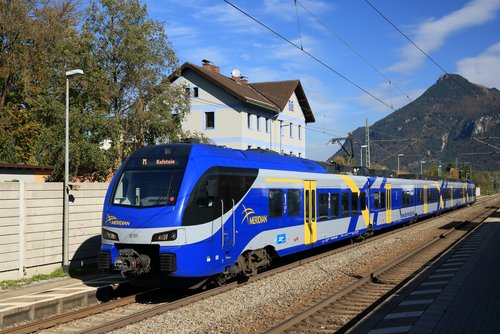Bayerische Oberlandbahn: Concept for adapting to climate change
Climate change
Climate change is a fact and its effects, such as rising average temperatures, more frequent extreme weather events and winters with less snow have long been felt, especially in the Alpine region. The main cause of the warming is the release of greenhouse gases, which are primarily due to human impacts. Even if all CO2 emissions were to be stopped immediately, many changes would continue to exist due to the inertia of the climate system. Against this background, it is extremely important to take precautions and to become active in good time, in order to adapt to the consequences of climate change.
About the project
This is where the project begins: bifa Umweltinstitut, together with the Economic Geography Chair of the LMU (Munich university), is developing a comprehensive climate adaptation concept for the Meridian brand of the Bavarian railway company Bayerischen Oberlandbahn. It operates the Munich – Rosenheim – Salzburg/Kufstein and Munich – Holzkirchen – Rosenheim routes as a managing company named Meridian. The joint work of bifa and LMU will focus on identifying and assessing specific opportunities and risks, in order to work out the consequences of future climate changes. The project team is examining various aspects of the company, for example, employees, customers and infrastructure, and is analysing product ranges and value-adding chains.
"The analysis is due for completion in 2017 and Meridian will be well equipped for its future under the aspect of climate change", explained Dr. Bernd Rosenbusch, Chairman of the Board of Bayerischen Oberlandbahn GmbH. He further added: "As a transport company which is used by so many people, we make a large contribution to environmental protection, but we cannot prevent climate change alone. We therefore have to adjust to it. We look forward to the analysis results of the experts."
The initiative is being funded by the Federal Ministry of the Environment, Nature Conservation, Construction and Nuclear Safety (BMUB).
![[Translate to Englisch:] Placeholder](/fileadmin/_processed_/f/4/csm_Header_Presse_d565a61df7.jpg)
